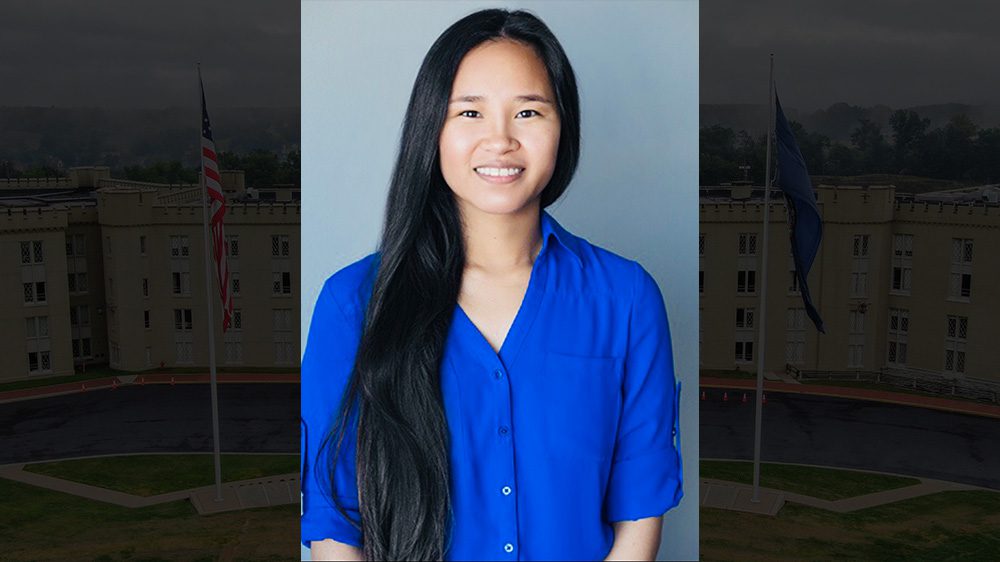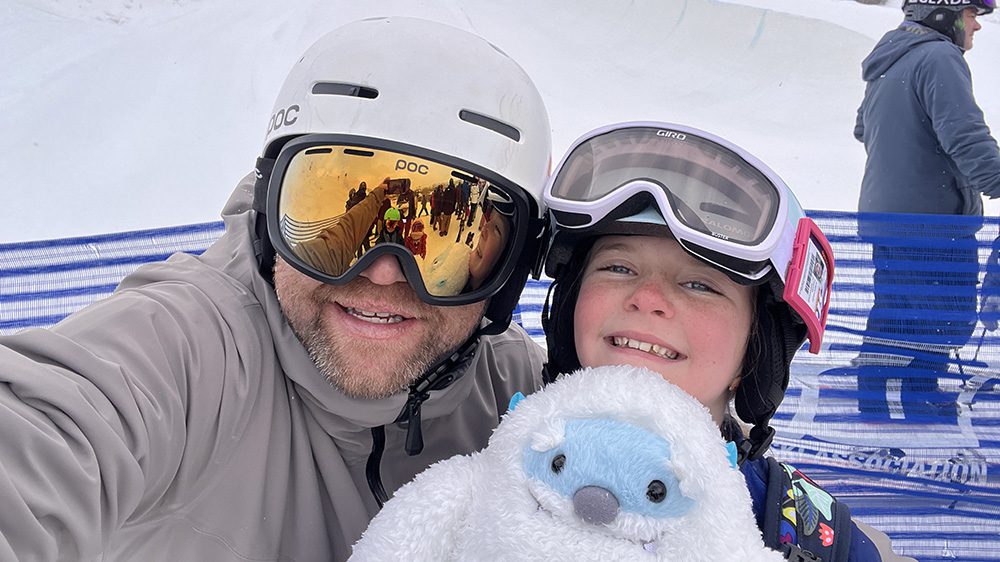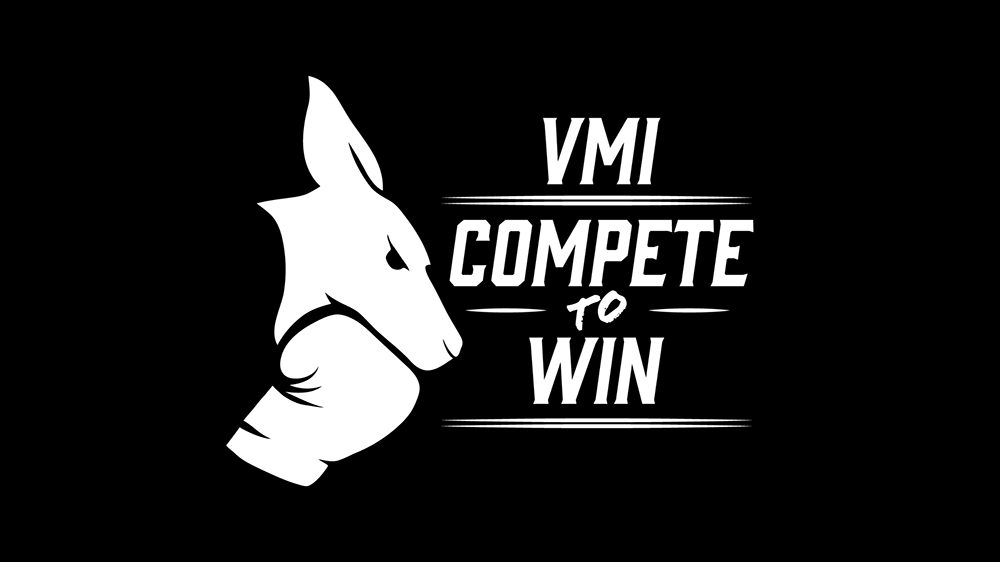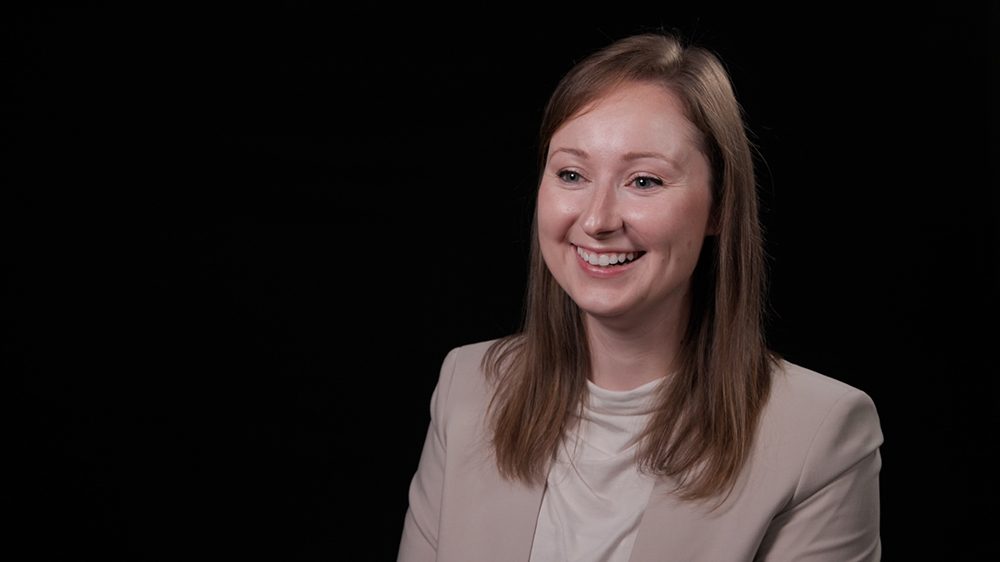Samantha Conde ’13, M.D., attended VMI to serve and lead—strengths she has now directed toward her passion for psychiatry as a fourth-year and chief resident at West Virginia University School of Medicine Charleston Division.
Growing up in Lenexa, Kansas, in a family of seven, Conde first found VMI after being inspired by the leadership of her high school cross country coach, who served as a second lieutenant in the U.S. Army. She began considering military service and knew she wanted to grow as a leader, which ultimately led her to the Institute. “[Coach] was very influential just in the way he held himself and coached us. I wanted that type of leadership role, so I started thinking about the military and ended up applying to VMI,” said Conde.
As a biology major, Conde found her goals shifted from military service to serving in the medical field. Meanwhile, she was also competing as an NCAA athlete on the cross country team during her rat and 1st Class years and running half-marathons and a 50-mile race during her 2nd and 3rd Class years. And though she didn’t quite know her niche was psychiatry yet, Conde was laying the groundwork for her future calling. After graduation, she worked as a medical assistant and volunteered on a medical mission trip in the Philippines, convincing her to apply to medical school.
While attending St. George’s University School of Medicine in St. George’s, Grenada, Conde fell in love with psychiatry. Her interest began with the unique aspects of the field, like the study of psychopharmacology and the process of diagnosing mental illnesses.
As she excelled in her psychiatry coursework, she began being told she should consider the field. Conde was further pulled toward psychiatry after her best friend died by suicide. By the time she completed her clinical rotation on a psychiatric unit in her third year of medical school, Conde’s choice was set. “Being able to interact with those patients and help them during their darkest times was something that resonated with me. I enjoyed connecting with the patients and hearing their stories. I felt like this would be my best place in medicine—I couldn’t see myself doing anything else,” said Conde.
Conde found her further interest in the medical subspecialty of forensic psychiatry, specifically criminal forensics, which plays to her strengths as an analytical thinker. As a criminal forensic psychiatrist, Conde’s work could involve evaluating if a defendant is competent to stand trial, meaning if they had sufficient understanding of working with a lawyer and understanding the proceedings against them. Forensic psychiatrists also evaluate criminal responsibility, assessing, for example, if a defendant lacked the capacity to distinguish right from wrong as a result of their mental disease at the time of the crime. She hopes to work in academia, as well, and spend half her time practicing outpatient psychiatry and the other half forensic. “I think it’s important to continue to do my general psychiatry work [in addition to forensic psychiatry] because that was the first thing that drew me into psychiatry was providing treatment to these patients,” said Conde.
Today, in her last year of residency, Conde said she’s grateful for the growth she experienced as a person and physician and the honor of being selected as a chief resident for her program—a leadership role she says her VMI experience helped equip her for. As chief resident, Conde makes the entire program’s academic schedules, such as lectures and learning; acts as a liaison between residents and the program director; and handles any interpersonal issues and conflicts among many other responsibilities. As a chief, she utilizes discipline, leadership, and preparedness honed as a cadet. “I also think VMI allowed me to become more of a resilient person and to become more disciplined, as well,” she said.
“Before I went to VMI, I was a very structured and regimented person, and I think VMI strengthened and shaped that even further. I think everyone kind of knows that I’m a very disciplined, regimented, and just a very overall prepared type of person; and my attending [doctors] will tell me ‘if there’s anything you are, it’s prepared,’” said Conde with a laugh. “I think these strengths are probably why they also felt that chief resident would be a good role for me.”
In addition to her accomplishments as a leader, Conde continues to excel academically in her field, scoring in the 97th percentile in the Psychiatry Resident-in-Training Examination, an annual examination for all psychiatry residents. She was also accepted into a one-year fellowship in forensic psychiatry at the University of South Carolina, which will begin in July.





